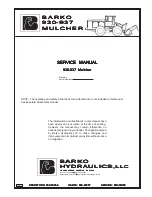
Technical Reference for Garmin NMEA 2000 Products
7
NMEA 2000 Fundamentals
Proper Termination
You must install terminators at the ends of your NMEA 2000 backbone for it to function correctly. You have two options when installing
terminators on your NMEA 2000 network.
1. Typical Terminators
If your NMEA 2000 network is built with correct linear backbone construction, use one female terminator and one male terminator. Install
the terminators at opposite ends of your NMEA 2000 network.
Using Standard Terminators
To NMEA 2000 devices
and power
Male
terminator
Female
terminator
Backbone extension cable
2. In-line Terminators
If one or both of the NMEA 2000 devices at opposite ends of your NMEA 2000 network are separated from the rest of the NMEA 2000
network by a length of backbone cable, and the typical T-connector/drop cable/terminator combination is not feasible or is too bulky for the
area, use an in-line terminator instead of the final T-connector on the backbone. Connect the final device to the in-line terminator with the
appropriate length of drop cable, or connect the final device directly to the in-line terminator, without a drop cable.
Using an Inline Terminator
To power
Female
terminator
Backbone
extension
cable
Inline
terminator
To a NMEA
2000 device
Inline Termination
Standard Termination
To the final NMEA 2000 device in the
backbone on this end. Connect the in-line
terminator directly to a NMEA 2000 device,
or use a drop cable up to 6 m (20 ft.) long.
Do not connect additional T-connectors or
terminators.
CautioN:
Do not use more than two terminators in a NMEA 2000 network.
Note:
The in-line terminator connects to the NMEA 2000 backbone with a male connector, and to the final NMEA 2000 device with a female
connector. Because of this, you can only use one in-line terminator on a NMEA 2000 network.












































